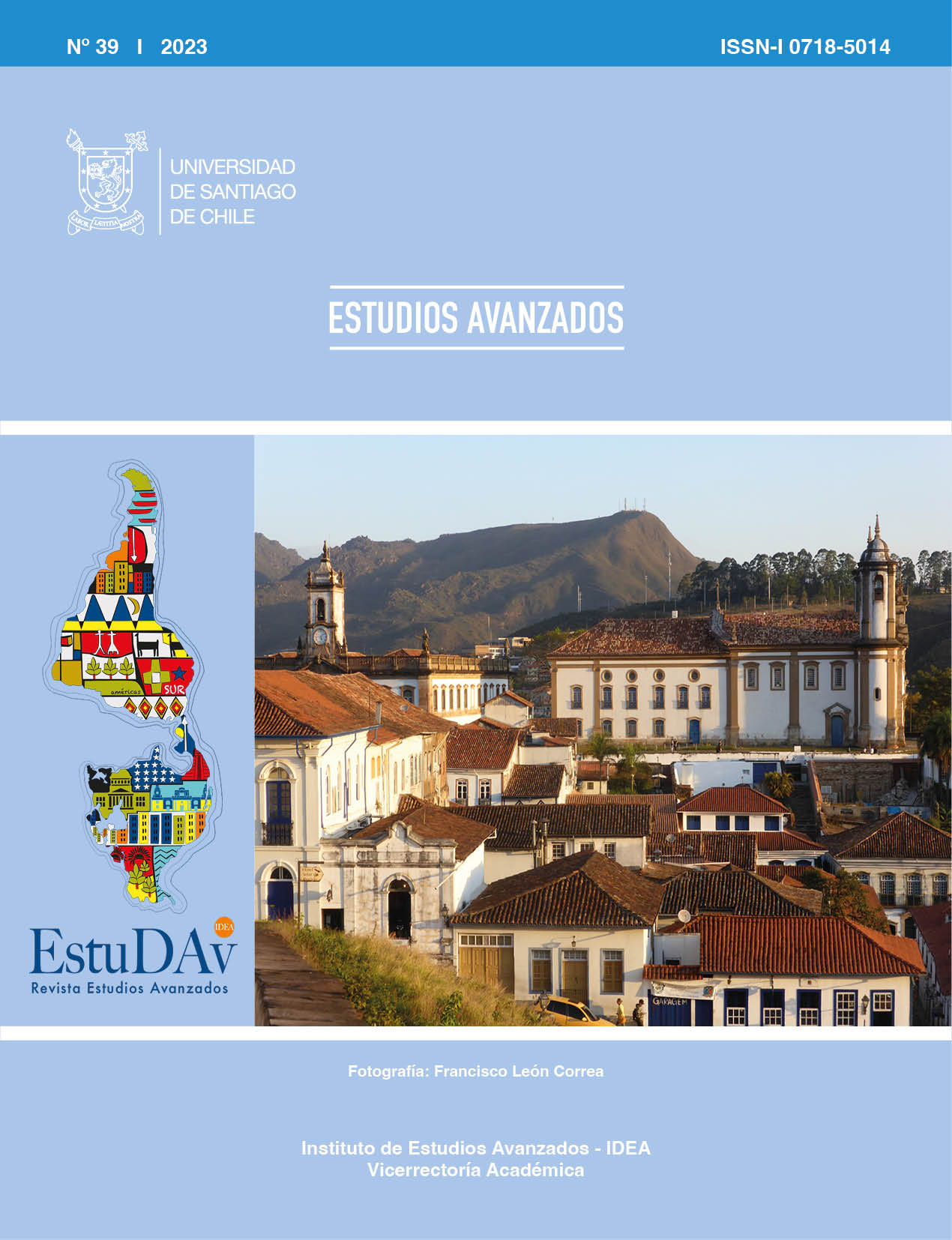Due to a hack of the institutional platform, articles prior to No. 28 (2018) are available at https://revistaestudav.usach.cl/. We will let you know when the complete collection is back on OJS.
No. 39 (2023)

EstuDAv Estudios Avanzados Journal ends this 2023 by publishing the speech of Ph.D. Ana Pizarro upon receiving the distinction of Professor Emeritus of the Universidad de Santiago de Chile. Her evocative words show her life among books, her back from exile, and that she continues to navigate the rivers of our ancestral America. With this sensitivity, the Dossier «Bodies, territorialities and hospitalities: Agencies and resistances in the production of life and death», coordinated by Anita Guazelli Bernardes, Neuza Maria de Fátima Guareschi, Camilla Fernandez Marques and Giovana Barbieri Galeano, is in tune with a South-South alliance committed to black, subalternized and critical epistemologies. Elis dos Santos and Simone Hüning deal with scriptural care as a policy of inextricable relationships in life. Adriana Garritano and Anita Guazzelli Bernardes delve into the resistance of youth to death thanks to their street rhymes. Giovana Barbieri and Neuza Guareschi, for their part, investigate how the regimes of truth generated by visual technologies produce excluded bodies based on security. Patricio Azócar and Javiera Roa highlight how social interventions open spaces for care and experimentation. Already in the miscellaneous section, Julia Velisone warns about the use of republicanism in two Argentine newspapers; Renato Vélez focuses on the transnational Arab party Qawmi Suri and its relations with the region; Natalia Raggio wonders about the supposed tensions and struggles in the understanding of religion in International Studies. Ricardo Labra, Christian Báez, Doris Sáez, and Claudia Rodríguez offer a proposal for the co-design of Piwkeyewün technological plant cultivation. Karla Vidal reviews the book Relatos de viaje Kawèsqar, to show the importance of navigation in the existence and the knowledge of its ancestral water circulation. Finally, the tribute to the late Enrique Dussel presented by Márcio Luís Costa offers a personal writing of the contribution of his prolific academic career, which highlights his way of life from the side of his decolonial philosophical reflection, with the spirit, as Josemar de Campos Maciel would say: to raise recognition of the rich forms of existence and ancestral knowledge that populate most of the world.









